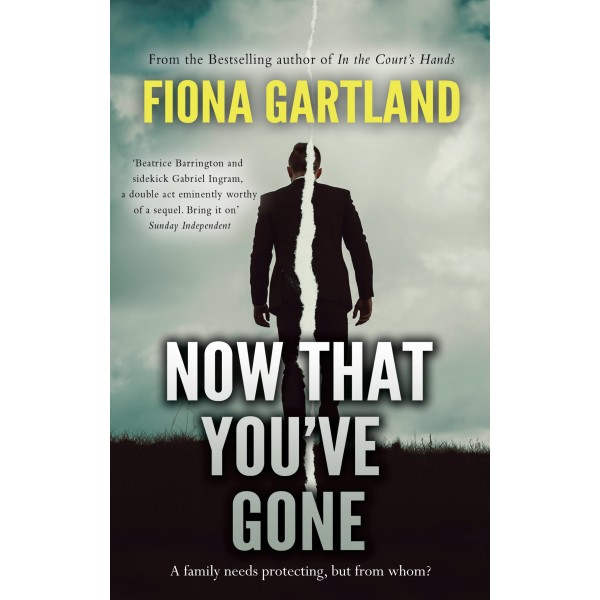Paula O’Hare casts her eye over recent crime fiction

Now That You’ve Gone
by Fiona Gartland | Poolbeg Crimson |400pp | €9.99 pb | 9781781997956.
review by Paula O’Hare

Oh, this is very clever. Crime writers looking for variations on private detectives and police have been working their way through district attorneys, pathologists, coroners, insurance company investigators—for God’s sake, they’ve reached archaeologists at this stage. It can work or it can be gimmicky. But how did nobody—until Fiona Gartland—spot the stenographer sitting neatly on the bench below the judge? Writing down everybody’s secrets, and saying nothing.
This is the second novel featuring Beatrice Barrington, stenographer in the Four Courts, writing up transcripts of family law cases, with a little office in Stable Lane, living in Clontarf, meeting up with her garda friend, Gabriel, in Hanlon’s of Hanlon’s Corner.
When her friend Georgina’s husband Andrew, a man with a perfectly ordinary suburban life, is inexplicably not just murdered but killed in gangland style, Georgina turns to Beatrice for her knowledge of how this world works. What are the Guards doing? What can they be thinking?
Beatrice tries to sound out retired guard Gabriel. He agrees that he can maybe chat to his friend on the case. But there is a price for everything. The word that comes back is that maybe Beatrice can be a bit helpful in return, by asking Georgina a few things that might be easier for her to come at than a Guard with a notebook. She knows that’s wrong in theory, but it might be one of those things that works out in practice. And she is curious herself. If the murder isn’t just a complete mistake of identity, if there really was something that serious, how could it be that Georgina, as his wife, didn’t know about it?
The story grows out from there: the old school friend of Andrew’s who turns up to say he is owed ten thousand euro; the attendant at the children’s school who seemed to know him from somewhere else. Another person is killed, apparently with the same murder weapon, but there is no natural connection to Andrew, except that Beatrice herself and Gabriel know both people.
The logic underlying the story is the same as the saying that in a city you’re never more than three feet away from a rat; or never more than three clicks on the Internet away from abusive porn; or, even if you never spot it, someone you know takes heroin. The author has covered the courts for The Irish Times for years, and everything that happens, although dramatic, feels perfectly real and possible.
The main thing to say, though, is that this is a very enjoyable read. The pacing of the development is perfectly right. It is proper, modern, present-day Dublin, cosy in the best way, with nice pints on Manor Street in the early evening, and homemade soda bread and tea in kitchens in Clontarf late at night.
***
Paula O’Hare is a public sector lawyer who likes detective novels.











